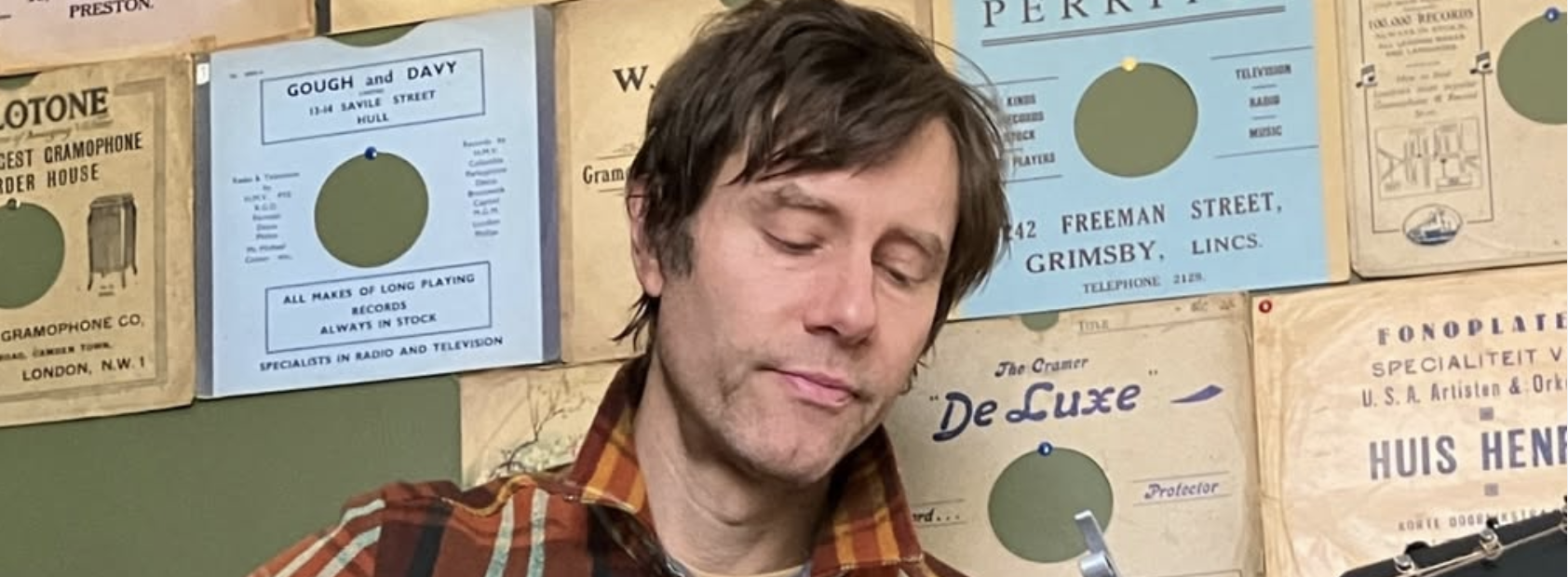INTERNATIONAL WOMEN’S DAY/ NEW RELEASE
Various artists play Ocean Child: The Songs of Yoko Ono
International Women’s Day
Kurated marks IWD 2022 by celebrating Yoko Ono. She stands out and she stands up for peace, women, justice and meaningful art and music.
CONTENTS- INTRO: Yoko Ono’s Music Made Accessible
- ESSAY: There is a Wind That Never Dies by writer and women’s music expert and champion Connie Kuhns is a must read 2020 essay about Ono.
Published in Vancouver’s GEIST Magazine it’s a comprehensive and in depth piece. - PLAYLIST: Hear Ocean Child on YouTube and Spotify
- REVIEWS: Pitchfork, The Guardian, NME, AllMusic

YOKO ONO’S MUSIC MADE ACCESSIBLE
A new album of covers spotlights the beauty and simplicity of her music. Who knew?
There’s simply noone like Yoko Ono in pop culture. Consider her main roles: conceptual artist; dedicated feminist; committed peace activist; groundbreaking (some would say ear-breaking) musician. Impressive, right? However, what best defines her is how she managed each of these roles despite her impact being ignored. Ono offered her open-minded vision with frank persistence while remaining enigmatic:
• As an experimental and conceptual artist she straddles a line between provocative avant-gardism and simple, zen-like work aimed at engaging audiences and, ultimately, earning her mainstream art gallery-style acceptance
• As a feminist Ono’s early 60s Concept art practice openly examined and challenged the patriarchal status quo. She’s continued advocating for women in her recent work including the current exhibit at the Vancouver Art Gallery.
• As a peace activist she and husband John Lennon made world-wide performance art out of their dedicated campaigns for peace using Bed-Ins, billboards and more to promote the cause
• As an outsider musician her often screeching and hard-to-take compositions opened a door for the punk and indie movements that followed and have many members who revere her. Not to mention hit making dance club djs and remixers who mined her catalogue for samples and melodies in the 2000’s.
A darker defining element of Yoko Ono’s career and persona is her media portrayal as an intruder and curiosity rather than legitimate artist. There was a prejudice – complete with racist undertones – against her as the older Japanese woman and weirdo who broke up the Beatles. Missing from this picture was Yoko as visionary; her kindness and invitations to her many audiences to act collectively and reconsider the world as it could be. Remember that the lyrics and concept for Lennon’s most popular song as a solo artist, Imagine, were based on her writing and collaboration. She was belatedly given an official co-writing credit in 2017.
Happy Birthday
To mark her 89th birthday on February 18, Ocean Child: The Songs of Yoko Ono was released thanks to the inspiration of Death Cab for Cutie musician Ben Gibbard.
“For years, it has been my position that her songwriting has been criminally overlooked,” he said in a statement. The 14-song set attempts to redress that. It features his band on one track plus Sharon Van Etten, David Byrne, Yo La Tengo, Sudan Archives and other acts who reside on the indie edge of mainstream music.
Name that Yoko Ono song…
Like most of you reading this I can hardly name a single one of her songs though I might recognize tracks from recordings she made with Lennon. Like me, you may be surprised to learn that Ono worked on 19 of her own albums between 1971 and 2018. Add seven more when her collaborations with Lennon are counted. In the 2010’s she had six consecutive Number 1’s on Billboard’s Dance/Club Play Songs thanks to remixes by groups like the Pet Shop Boys.
Listening to an album of covers without knowing the originals means assessing the songs on their own merits. Ocean Child holds up pretty well on that front and several performances stand out. Van Etten’s rendition of Toyboat could easily find a place on one of her own albums. Byrne and Yo La Tengo’s playing of Who Has Seen the Wind is gently evocative with gorgeous harmonies. Other tunes worth playing include Growing Pain by Jay Som, Japanese Breakfast’s Nobody Sees Me Like You Do, and Dogtown by Sudan Archives.
Ono has a way of elevating the everyday into something universal. Or maybe it’s that she sees the universal in the everyday. Given how famous she is, it’s surprising that many of us don’t know more about her and her music. That’s why this album was made and why it’s a worth a listen.
TRACK LIST
- Sharon Van Etten – Toyboat
- David Byrne And Yo La Tengo – Who Has Seen The Wind
- Sudan Archives – Dogtown
- Death Cab For Cutie – Waiting For The Sunrise
- Thao – Yellow Girl (Stand For Life)
- US Girls – Born In A Prison
- Jay Som – Growing Pain
- Stephin Merritt (of Magnetic Fields) – Listen, The Snow Is Falling
- Deerhoof – No No No
- We Are KING – Don’t Be Scared
- The Flaming Lips – Mrs Lennon
- Japanese Breakfast – No One Sees Me Like You Do
- Yo La Tengo – There Is No Goodbye Between Us
- Amber Coffman
To share this post on social media see below.
Stay tuned and enjoy,

08 March 2022
ESSAY
GEIST MAGAZINE
The following essay was first published in Vancouver’s GEIST Magazine in 2020.
Author Connie Kuhns has a 40-year history as an essayist, journalist, photographer and broadcaster.
For fifteen years she was the producer and host of the innovative program Rubymusic on Vancouver Co-op Radio, which focused on the then nascent women’s music scene.
Further essays can be found at www.geist.com/kuhns-connie including those on Joni Mitchell and the women in Vancouver’s punk movement. Other writings have been finalists for awards including a National Magazine Award, the LA Review Literary Awards and Prism International’s CNF prize.
Her photographs have been published in the Washington Post and the Globe and Mail. Last year her work was selected as a 2021 finalist for the Salt Spring National Art Prize.
There is a Wind That Never Dies
by Connie Kuhns / Geist Magazine
I follow Yoko Ono on Twitter. She is my daily devotion, my addiction. She reassures me that Good things will come later and she urges me to Remember love. Her words would go nicely on a refrigerator magnet. I was not quite a woman when she arrived uninvited, a grey mist over a blonde sea. But as I aged, she became my mystery to solve, my road less travelled.
Her early instructional writings tell me to imagine the clouds dripping, to send the smell of the moon (to someone), to see the sky between a woman’s thighs. She once labelled polished beach stones and shards of glass as past and future mornings, to be sold at dawn from her roof top. She took a childhood game called “Telephone” and turned it into performance art. (When she introduced “Whisper Piece” at the Destruction in Art Symposium in London, in 1966, asking the audience to whisper the same word from ear to ear, many of the male artists asked that she be removed.)
REVIEWS

THE GUARDIAN NEWSPAPER
Ocean Child: Songs of Yoko Ono:
Tribute to brilliance of rock icon’s music
Death Cab for Cutie, David Byrne and the Flaming Lips are among artists reworking Ono’s strange sound and outsider songs into something more palatable
by Rachel Aroesti / The Guardian
Yoko Ono is one of the biggest names in rock history – and yet her music is frequently overlooked, if not actively ignored. Years of frustration at this state of affairs motivated Death Cab for Cutie frontman Ben Gibbard to helm this tribute album, intended to demonstrate the breadth, charm and brilliance of her output. Gibbard is not the first person to attempt to rescue Ono’s reputation, but the crack team he has assembled to cover her songs – David Byrne, the Flaming Lips, Sharon Van Etten, US Girls, Sudan Archives, Japanese Breakfast – will appeal to listeners previously unaware of the source material.
In the same vein, many of the covers make Ono’s strongly idiosyncratic, almost outsider songs more palatable. Sometimes this merely entails exposing the crowd-pleasing loveliness lingering just below the surface, as on Jay Som’s sublime dream-pop rework of Growing Pain. Others iron out some of the essential weirdness: Byrne and Yo La Tengo’s sonorous, barbershop-style version of Who Has Seen the Wind is far less jarring than the hauntingly childlike vocals and Elizabethan-style instrumental of the original. It is only the Flaming Lips that manage to make Ono odder, adding extra trippiness to Mrs Lennon.
Whether Ocean Child’s tendency to replace the startling strangeness of Ono’s originals with something easier on the ear is doing her a disservice is debatable: in 2016, she said she thought her “music was beautiful all along”. This album proves there is appeal to her songwriting that goes far beyond her own inimitable presence – but it’s hard not to miss that presence. In fact, it’s impossible not to repeatedly turn Ocean Child off, and instead seek out the originality and uniqueness of the genuine article. Presumably, it’s what Gibbard would want.
ALLMUSIC ONLINE
Ocean Child: Songs of Yoko Ono Review
Ocean Child: Songs of Yoko Ono Review
by Fred Thomas / AllMusic.com
Yoko Ono‘s profound songwriting and musical clarity have historically been overshadowed by tired criticisms of her more avant-garde material and even more tedious assessments of her connection to the Beatles.
What doesn’t get talked about enough is Ono‘s sharp approach to penning strange but crystal-clear pop songs, and how those tracks have quietly influenced new acts for decades. Ocean Child: Songs of Yoko Ono illuminates Ono‘s often unsung influence on the last few generations of indie rock by collecting covers from across her wide discography, performed by artists who are fans and followers. The compilation is curated by Death Cab for Cutie‘s Ben Gibbard, and Death Cab contribute a toned-down, metered interpretation of the Approximately Infinite Universe track “Waiting for the Sunrise” with a variety of crisp guitar tones and clean vocal harmonies.
Indie makeovers of Ono‘s sometimes obtuse songs make for some of Ocean Child‘s best entries. Japanese Breakfast strips down the originally buzzy and thickly orchestrated “Nobody Sees Me Like You Do” to just piano and vocals, and Sharon Van Etten‘s take on the 2007 Yes, I’m a Witch track “Toyboat” brings the song’s emotional yearning to the surface with its powerful vocal performance and straightforward arrangement.
On more intense offerings, the Flaming Lips transform the somber Fly selection “Mrs. Lennon” into a parade of multicolored distortion, and Deerhoof shout and smash their way through the aggressive “No No No.” U.S. Girls work magic on “Born in a Prison,” replacing its doo wop backing with twinkling bells and symphonic flourishes. Yo La Tengo show up on their own and as a backup band for David Byrne, and other standout tracks come from Jay Som and former Dirty Projectors member Amber Coffman.
Ono has been admired in indie circles for her singularity and boldness for as long as she’s been active. Scheduled to coincide with her 89th birthday, Ocean Child is a fitting tribute to an artist who’s challenged herself and her audiences for the entirety of a lifelong career, and inspired entire sects of music in the process.
PITCHFORK ONLINE
Curated by Ben Gibbard and featuring Sharon Van Etten, David Byrne, Japanese Breakfast and more, this tribute album fares best when the artists match Yoko Ono’s fearless spirit
By Jayson Greene / Pitchfork
Whenever Beatlemania goes into brief remission, the world recalls that Yoko Ono helped invent punk, post-punk, and new wave. From Kate Pierson of the B-52’s to Kim Gordon to Kathleen Hanna to ANOHNI to RZA—the list of artists who cite her as a spiritual and stylistic godmother is staggering, and her influence spans from the avant-garde to the Billboard Hot Dance 100, where she racked up six consecutive No. 1s at the ripe age of 78. But all this history is instantly submerged the minute the Beatles reenter the cultural conversation, which will happen as long as entertainment companies have Q4s. Then, it’s 1971 all over again, and she is once more reduced to a lightning rod. Sometimes, it feels the world is not big enough to contain both Yoko Ono’s public persona and the music she made.
For that reason, there’s never a bad time to put out a compilation celebrating Ono’s output. But Ocean Child, a new tribute album assembled by Death Cab for Cutie’s Ben Gibbard, comes at a particularly charged moment: It was just over three months ago that Peter Jackson’s 8-hour documentary Get Back debuted on Disney Plus, reigniting the “Yoko Ono, Destroyer of Beatles” narrative that swarms without fail to the surface of any reexamination of the band’s final days. The setting is ideal for a corrective, something to put her music back in people’s ears.
The trouble is, listening to this comp is a spotty way to get to know her. In a sweet note accompanying Ocean Child, Gibbard expresses the hope that the album will guide new listeners to Ono’s work, and the list of contributors suggests he understands her music’s elemental power: Thao, Sudan Archives, Deerhoof, Sharon Van Etten, the R&B group We Are KING. The song choices are smart, and all of the covers range from capable to very good, but all of them reinforce the idea that no one else could make her music.
NEW MUSICAL EXPRESS MAGAZINE
A fittingly unique tribute
The bonafide alt-rock icon has inspired Death Cab For Cutie’s Ben Gibbard to curate a collection of covers from Sharon Van Etten, David Byrne and more
By Mark Beaumont / NME
The Bob Dylan of experimental pop (thanks to that idiosyncratic, Marmite sort of voice) has become a bonafide alt-rock icon since she collaborated with The Flaming Lips and Sonic Youth’s Thurston Moore and Kim Gordon in the early ’10s. Hence Death Cab For Cutie’s Ben Gibbard curating this covers celebration of the broad and under-appreciated scope of Yoko Ono’s songwriting, from bubblegum pop to fox-caught-on-fencepost and back again.
Many of the contributors work their own unique wonders with the material at hand; the simplicity of Ono’s writing lends itself equally to piano or corroded guitar. Sharon Van Etten turns ‘Toyboat’ into a haunting, oceanic spiritual lament where subtle hums and coos do the heavy melodic lifting, like a ghost ship shanty; Japanese Breakfast works her own magic on ‘There Is No Goodbye’; and Amber Coffman (formerly of Dirty Projectors) turns ‘Run Run Run’ into an intimate lo-fi piece played on what sounds like Lou Reed’s ‘Heroin’ guitar.
The Magnetic Fields‘ baritone crooner Stephin Merritt takes a similar angle on ‘Listen, The Snow Is Falling’, creating an enigmatic atmosphere by means of throbbing church organ and drip-drip beats like stalactites melting in a cavern. Several of the full-band covers are similarly reverential. Yo La Tengo, appearing twice, join forces with David Byrne to give the nursery rhyme-ish ‘Who Has Seen The Wind’ a lovely barbershop treatment, then later deliver ‘There Is No Goodbye Between Us’ as if from the 6 Music Shoegaze Lounge. The Flaming Lips crank up the deep space funk vibes of their recent albums for ‘Mrs. Lennon’ and Death Cab themselves have lots of indie-rock fun with the breathlessly perky ‘Waiting For The Sunrise’.
In fact, the album only really goes astray when contributors decide, understandably, to pay tribute to Yoko’s avant-garde side. To out-weird Yoko, it transpires, is a futile mission. Deerhoof’s ‘No No No’, for example, does a good job of capturing the spirit of Yoko’s cacophonous art frenzies, but sounds as though it’s playing at twice the correct speed. Which is probably the point, but merely piles quirk on quirk for quirk’s sake.
Ono’s experimentalism is better emulated by U.S. Girls, who transforms 1972’s ‘Born In A Prison’ into a twinkly operatic show tune that most fittingly reflects how striking and surprising Yoko’s music can be at its best. A decidedly strange record with flashes of beauty and brilliance, then. How utterly Yoko.





